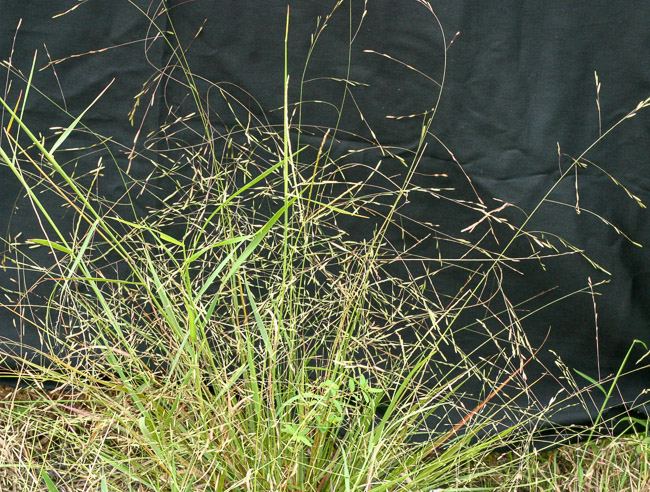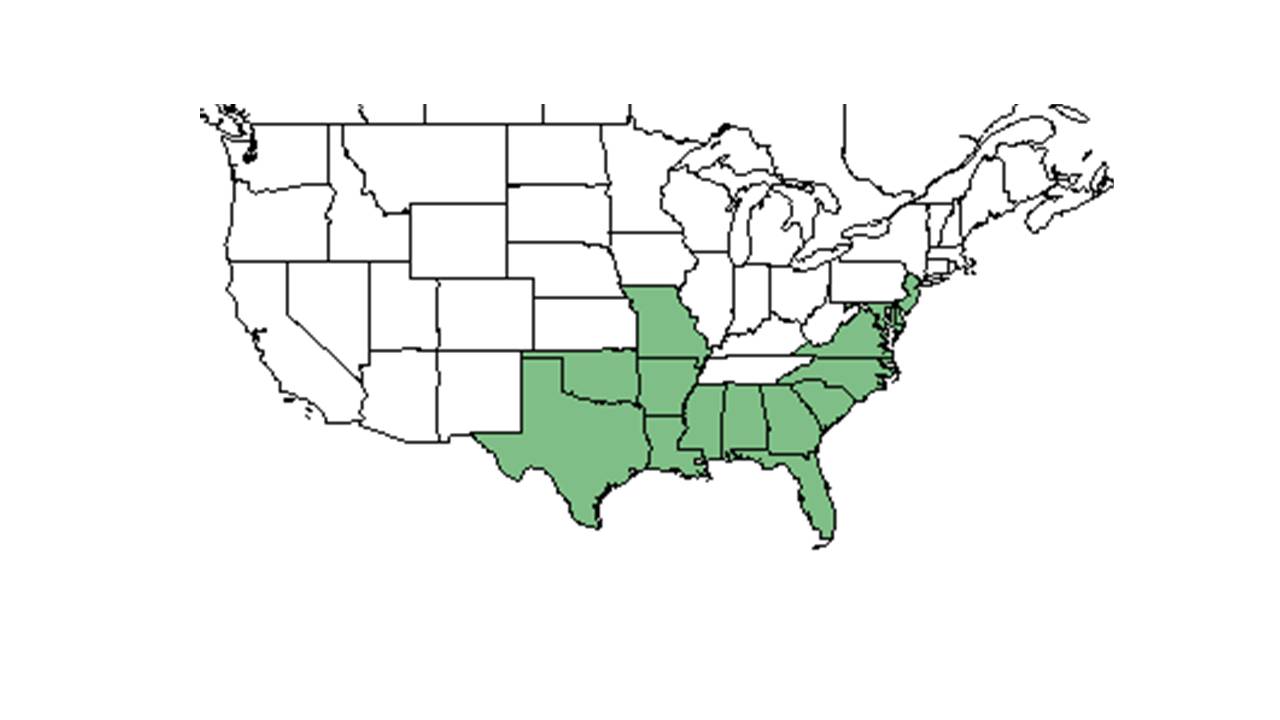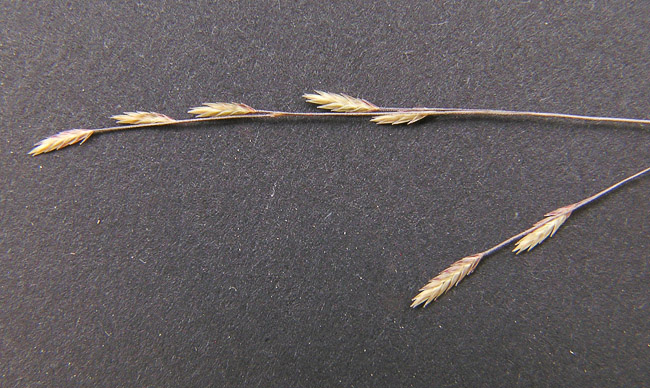Eragrostis refracta
| Eragrostis refracta | |
|---|---|

| |
| Photo and permission granted by George Rogers and John Bedford, Florida Grasses.org | |
| Scientific classification | |
| Kingdom: | Plantae |
| Division: | Magnoliophyta - Flowering plants |
| Class: | Liliopsida – Monocotyledons |
| Order: | Cyperales |
| Family: | Poaceae ⁄ Gramineae |
| Genus: | Eragrostis |
| Species: | E. refracta |
| Binomial name | |
| Eragrostis refracta (Muhl.) Scribn. | |

| |
| Natural range of Eragrostis refracta from USDA NRCS Plants Database. | |
Common name: Coastal lovegrass
Contents
Taxonomic notes
Synonym: Eragrostis virginica (Zuccagni) Steudel
Description
Weakley states that some authors have taken up the older name E. virginica, as a synonym for E. refracta, but the application of synonymy is uncertain[1].
Generally, for the Eragrostis genus, they are "annuals or perennials from short rhizomes or hardened bases. Glumes similar, shorter than lowest lemma. Florets more than 2. Lemmas 3-nerved, paleas persistent, ciliate" [2].
Specifically, for Eragrostis refracta species, they are "cespitose perennial from hardened base; culms 3-10 dm tall, nodes and internodes glabrous. Leaves primarily low cauline; blades elongate, to 2.5 dm long, 1.5-4 mm wide, pilose above, glabrous beneath, margins scaberulous; sheaths glabrous; ligules membranous, 0.1-0.2 mm long, long trichomes in throat. Panicle loose, open ½-3/4 height of the plant, ½ to as broad as long; branches flexuous, scaberulous. Spikelets with dark margins and light centers, 4-22 flowered, lateral spikelets longer than pedicels, appressed, 8-13 mm long, 1.5-1.8 mm wide. Glumes 1-nerved, scabrous keeled, acuminate, 1st glume 0,8-1.3 mm long, 2nd glume 1.5-2 mm long; lemmas scabrous keeled, acuminate, 1.5-1.8 mm long; paleas 1-1.5 mm long. Grain reddish, oblong, 0.5-0.7 mm long." [2].
Distribution
It is distributed from Deleware south to Florida, and west to Texas[1].
Ecology
Habitat
Is found in open longleaf pine woods, open woodlands[3] and in pineland, savannas, bogs and seeds, and marshes[1]. Is also found along the roadside edges. Requires high light levels. Is associated with areas with dry sand or dry, loamy sand soil types[3].
Associated species include Composites, legumes, and grasses. Also Eriocaulon lineare and Lachnocaulon minus[3].
Phenology
Has been observed flowering and fruiting from September to November[3].
Conservation and management
Cultivation and restoration
Photo Gallery
Seedhead of Eragrostis refracta Photo and permission granted by George Rogers and John Bedford, Florida Grasses.org
File:Erag_refr_Spikes-FLGrasses-Org-Bradford&Rogers.jpg |
Photo and permission granted by George Rogers and John Bedford, Florida Grasses.org
</gallery>
References and notes
- ↑ 1.0 1.1 1.2 Weakley, Alan S. Flora of the Southern and Mid-Atlantic States: Working Draft of 21 May 2015. University of North Carolina Herbarium (NCU). PDF. 406.
- ↑ 2.0 2.1 Radford, Albert E., Harry E. Ahles, and C. Ritchie Bell. Manual of the Vascular Flora of the Carolinas. 1964, 1968. The University of North Carolina Press. 66-71. Print.
- ↑ 3.0 3.1 3.2 3.3 Florida State University Robert K. Godfrey Herbarium database. URL: http://herbarium.bio.fsu.edu. Last accessed: June 2014. Collectors: Loran C. Anderson, J. M. Kane, Cindi Stewart, - MacClendons, and Annie Schmidt. States and Counties: Florida: Gadsden, Jackson, Liberty, and Suwannee. Georgia: Thomas.
